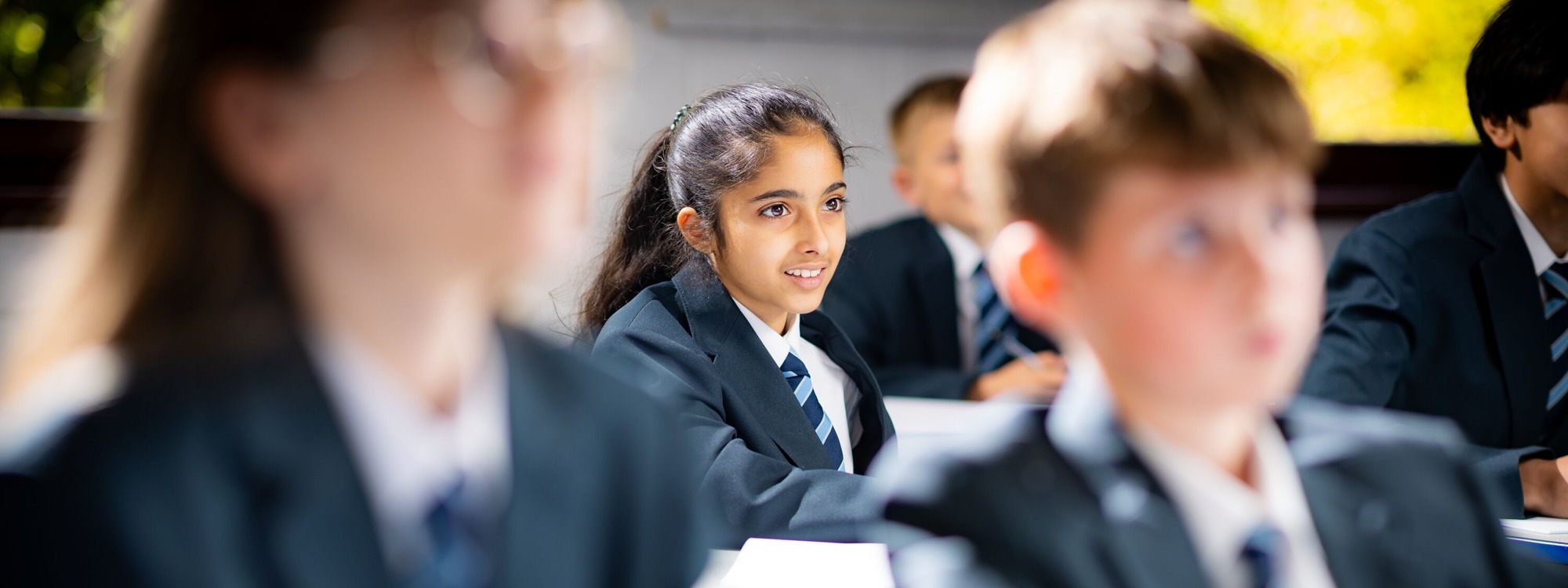- Home
- Key Information
- Curriculum
- Religious Education
Religious Education
"We do not have to accept each other's beliefs...but we do have to accept each other's right to believe them." - Jodi Picoult
Religious Education is...
A platform for enquiry, debate and a sharing of ideologies which empowers students to develop a sense of identity and belonging. We equip our students with the knowledge and virtues such as empathy and curiosity so that they are able to flourish within multi-faith societies locally, nationally and internationally Our Religious Education curriculum, based on the ‘Widening Horizons’ locally agreed syllabus for the Borough of Hounslow, enables students to gain a deep understanding of the six major world religions and Humanism.
Units are focused on individual religions to develop deep knowledge, understanding and awareness of Christianity and the other major world religions. These are delivered chronologically, building upon KS2 knowledge of the Abrahamic faiths in Year 7 and then exploring Eastern religion in Year 8. Humanism and the study of Ethics are prioritised at Year 9 so students have full access to a range of spiritual, moral and cultural ideas. We place emphasis on challenging pupils to answer ultimate key questions by reflecting on their own beliefs and values and how these fit with the views of others around them.
SEQUENCE OF LEARNING
|
KS |
Year |
Autumn 1 |
Autumn 2 |
Spring 1 |
Spring 2/ Summer 1 |
Summer 2 |
|---|---|---|---|---|---|---|
|
3 |
7 |
How did Judaism begin and develop? |
Why is Jesus so important to Christians? |
What is the significance of the 5 Pillars of Islam? |
How is the ideology of Christianity represented in the story of ‘The Lion, the witch and the wardrobe’? |
How and why do Islamic and Christian representations of God differ? |
|
8 |
What do Hindus believe about the soul and its relation to God? |
How do Buddhist ideas differ to other ideas about God? |
Why is social justice important to Sikhs? |
What does it mean good? |
What do the main world religions believe about life after death? |
|
|
9 |
Alternative religions and cults What are the beliefs and practices of alternative religions and cults? |
Ethics – Marriage and the family What are differing (religious and humanist) views on issues within marriage and the family e.g. marriage traditions and the role of the family? |
Ethics – Marriage and the family cont… How far does religion shape ethical ideas of society? |
Ethics – Matters of life and death What are differing religious and Humanist views on issues e.g. euthanasia and capital punishment? |
Ethics – Matters of life and death
What are differing religious and humanist views on issues such as human rights and the treatment of animals? |
|
|
4 |
10 |
The study of religion – Islamic Beliefs What are the fundamental beliefs of Muslims? |
The study of religion – Christian Beliefs What is the significance of the Five Pillars of Islam? |
What are the fundamental beliefs of Muslims? |
The study of religion – Islamic Practices What is the significance of the Sacraments and other key practices in Christianity? |
Thematic Studies – Marriage and family What are the Muslim and Christian views within marriage and the family e.g. relationships outside marriage and the importance of family units? |
|
11 |
Thematic studies – Religion and life What are the Muslim and Christian views on topics such origins of the world and uses/ abuse of the earth? |
Thematic studies – Religion, peace and conflict What are the Muslim and Christian views on topics such as reasons for war and weapons of mass destruction? |
Thematic studies – Religion, crime and punishment What are the Muslim and Christian views on reasons for crime and treatment of criminals? |
Revision of all units. |
Revision of all units and exams |
GCSE Exams: AQA Religious Studies Specification A – Christianity and Islam.





